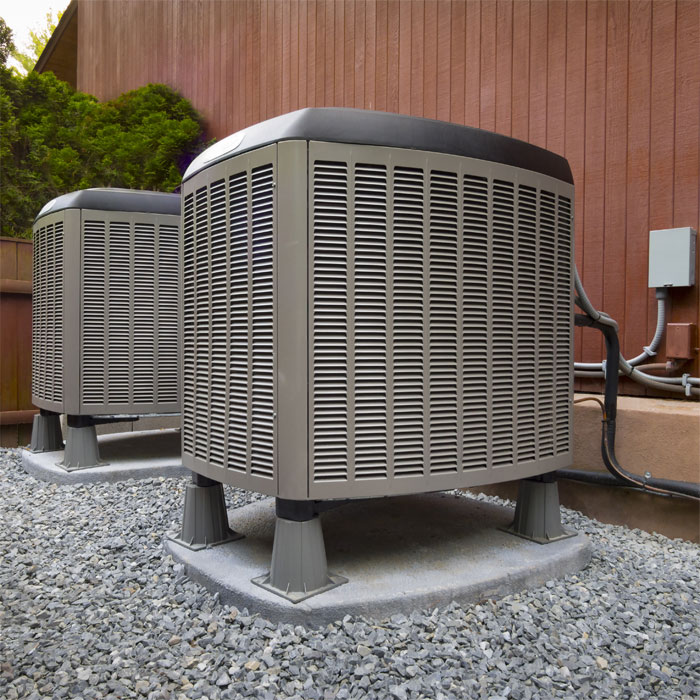
As temperatures soar and the sweltering heat of summer approaches, the importance of a reliable and efficient air conditioning system becomes abundantly clear. Whether you're enduring scorching heat waves or seeking refuge from oppressive humidity, a new air conditioning system can provide the comfort and relief you need to stay cool and comfortable indoors.
In this comprehensive guide, we explore the signs indicating the need for a new air conditioning system, the process involved in acquiring one, and essential factors to consider when making this significant investment.
Assessing the Need for a New Air Conditioning System
Determining whether it's time to replace your existing air conditioning system involves evaluating various factors that affect its performance, efficiency, and reliability.
Here are some signs indicating that it may be time for a new air conditioning system for your home:
As air conditioning systems age, their efficiency tends to decline, leading to higher energy bills and reduced cooling capacity. If your system is over 10 to 20 years old and experiencing frequent breakdowns or inefficiencies, it may be time to consider upgrading to a newer, more energy-efficient model.
If your current air conditioning system requires frequent repairs or parts replacements, it could indicate underlying issues that are compromising its performance and reliability. Continual repair costs can quickly add up, making it more cost-effective to invest in a new, more reliable system.
If your home consistently feels warmer than desired, despite your air conditioner running at full capacity, it could indicate that the system is struggling to maintain adequate cooling. This may be due to factors such as improper sizing, ductwork issues, or declining efficiency. While the system may be able to be repaired, if it happens continuously, especially if it's an older system, it may be time for a new air conditioner.
An inefficient or outdated air conditioning system can significantly contribute to higher energy bills, particularly during peak cooling seasons. If you notice a steady increase in your energy costs without a corresponding increase in cooling comfort, it may be time to upgrade to a more energy-efficient model.
Uneven cooling or temperature fluctuations throughout your home can be indicative of underlying issues with your air conditioning system, such as ductwork leaks, improper sizing, or inadequate insulation. Upgrading to a new system with improved zoning capabilities can help address these issues and provide more consistent comfort.
Unusual noises, excessive humidity levels, or musty odors emanating from your air conditioning system may signal mechanical problems or mold growth, which can compromise indoor air quality and comfort. A new system with advanced features such as variable-speed technology and humidity control can help alleviate these issues.
The Process of Acquiring a New Air Conditioning System
Once you've determined that a new air conditioning system is needed, the process of acquiring one involves several steps to ensure you select the right system for your home and needs. Here's an overview of what's involved:
Begin by scheduling a consultation with a reputable air conditioning contractor. A qualified technician will assess your home's cooling needs, evaluate existing equipment and infrastructure, and discuss your preferences and budget constraints.
Based on the assessment, the HVAC technician will recommend suitable air conditioning systems tailored to your home's size, layout, insulation, and cooling requirements. Proper sizing is crucial to ensure optimal performance, efficiency, and comfort.
Consider factors such as energy efficiency ratings (SEER), warranty coverage, brand reputation, and advanced features when selecting a new air conditioning system. Your HVAC contractor can provide recommendations and guidance to help you make an informed decision.
Once you've chosen a system, schedule the installation with your HVAC contractor. Professional installation is essential to ensure the system is installed correctly, according to manufacturer specifications and local building codes. This includes proper placement of indoor and outdoor units, ductwork installation, and electrical connections.
After installation, the HVAC technician will thoroughly test the system to ensure it's functioning correctly and calibrated for optimal performance. This may involve adjusting airflow, verifying refrigerant levels, and programming thermostat settings.
Before completing the installation, the HVAC technician should provide instructions on operating and maintaining the new air conditioning system. Regular maintenance, such as filter replacement, coil cleaning, and system inspections, is essential to maximize efficiency, longevity, and performance.
Selecting a New Air Conditioning System
When selecting a new air conditioning system, it's essential to consider several key factors to ensure you choose the right system for your home and needs. Here are some important features and considerations to look for:
Look for air conditioning systems with high Seasonal Energy Efficiency Ratio (SEER) ratings, indicating greater energy efficiency and lower operating costs. ENERGY STAR® certified systems meet stringent energy efficiency standards and may qualify for rebates or incentives.
Consider systems with advanced features such as variable-speed compressors, two-stage cooling, and humidity control for improved comfort, efficiency, and indoor air quality.
Ensure the system is properly sized to match your home's cooling load, taking into account factors such as square footage, insulation, windows, and occupancy. Oversized or undersized systems can result in inefficiencies, comfort issues, and premature wear.
Choose a system with quiet operation to minimize noise levels and ensure a peaceful indoor environment. Look for units with sound-dampening technology and low-decibel ratings.
Review the manufacturer's warranty to understand coverage terms, duration, and exclusions. Extended warranty options may provide added peace of mind and protection against unexpected repair costs.
If you have existing smart home automation or HVAC control systems, ensure compatibility with the new air conditioning system for seamless integration and enhanced convenience.
Select a reputable HVAC contractor with experience, expertise, and certifications in air conditioning installation. Proper installation is critical to ensure optimal performance, efficiency, and longevity of the system.
Investing in a new air conditioning system is a significant decision that can enhance comfort, efficiency, and indoor air quality in your home. By assessing your cooling needs, working with a qualified HVAC contractor, and selecting a system with the right features and specifications, you can enjoy reliable and efficient cooling performance for years to come. Whether you're seeking relief from summer heat waves or looking to upgrade to a more energy-efficient system, a new air conditioning system can transform your home into a cool and comfortable oasis, even in the hottest months of the year.


